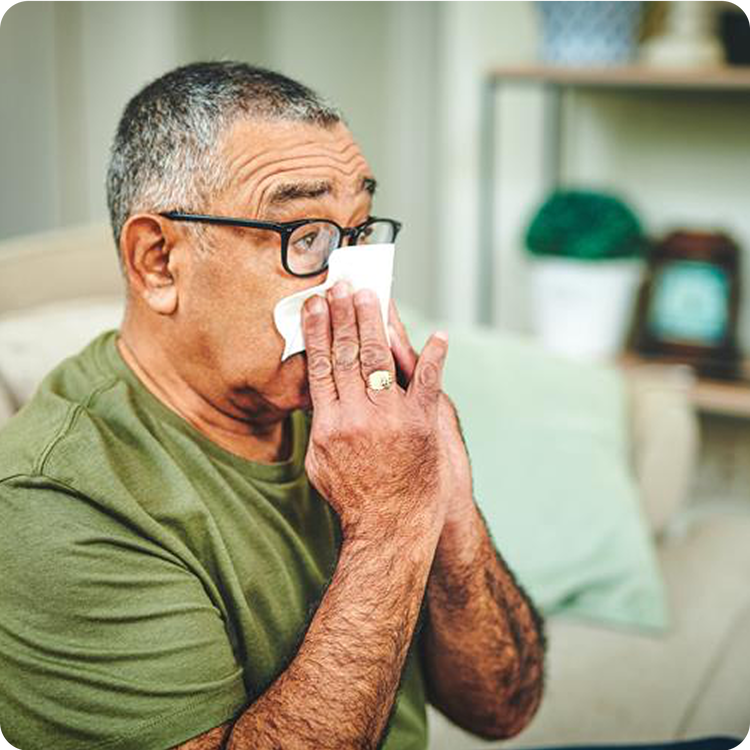Treat within the
first 5 days.
- At the first sign of symptoms, it could be COVID-19
- Oral prescription medications are available to treat COVID-19
- Prescription medications must be taken within 5 days of your first symptoms
- If you are over 50 or have certain medical conditions, time matters
- Contact your doctor as soon as possible to see if treatment is right for you

Talk to your doctor at the first sign of symptoms.
Talk to your doctor about your symptoms
Download doctor discussion guide
Schedule an appointment
At the first sign of COVID-19 symptoms, contact your doctor. Use the Doctor Discussion Guide to guide your chat.
List your symptoms
Create a list of any symptoms you are experiencing. Even something minor may be important. Using the Doctor Discussion Guide can help.
Recognize your risks
Discuss certain medical conditions with your doctor. Write conditions and medications in the Doctor Discussion Guide.
Ask about treatment
Ask your doctor if prescription medicine is right for you. The sooner you talk, the sooner treatment can begin.
To find out if you have COVID-19, fast online and in-person testing options are available.
Order online and get a test delivered as early as today.
75% of adults in the US have at least one risk factor for progression to severe COVID-19.
Source: Am J Prev Cardiol

Frequently asked questions
According to the Centers for Disease Control and Prevention (CDC), common COVID-19 symptoms include:
- Fever or chills
- Cough
- Shortness of breath or difficulty breathing
- Fatigue
- Muscle or body aches
- Headache
- New loss of taste or smell
- Sore throat
- Congestion or runny nose
- Nausea or vomiting
- Diarrhea
Talk to your doctor at the first sign of symptoms and ask if a prescription to treat COVID-19 is right for you.
Severe COVID-19 is when a person gets very ill with COVID-19 and needs medical treatment (hospitalization, intensive care, or ventilator use).
Even if your symptoms are mild now, they can get worse quickly. Your symptoms are more likely to progress if you have certain risk factors.
People of all ages or groups can be infected with COVID-19. Some people are more likely than others to progress to severe COVID-19, which can lead to hospitalization or worse, even when symptoms start off as mild.
Having a high-risk factor puts you at risk of progression to severe COVID-19:
- Age
- Health conditions and diseases
- Obesity
- Mental health conditions
- Disabilities
Speak with your doctor to help determine your risk status even before a positive COVID-19 result.
A range of environmental conditions and behavioral patterns factor into seasonal surges of COVID-19, including:
- Temperature and humidity, which can affect the ability of viruses to survive and spread
- Time spent indoors, where there is less ventilation
- Vacation travel and gatherings
Don’t let COVID-19 ruin your summer plans. At the first sign of symptoms, get tested and talk to your doctor.
Source: CDC
COVID-19 is spread when an infected person exhales small droplets of saliva that contain the virus that are:
- inhaled
- land on the eyes, nose, or mouth
- or are introduced to the eyes, nose, or mouth with hands that have the virus on them.
If you’re at high risk for severe COVID-19, ask your doctor about prescription medication if you test positive.
Experiencing severe symptoms? Contact your doctor right away.
Source: CDC